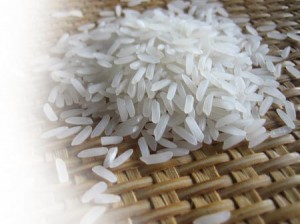Most of us take for granted a full plate at the dinner table. But even in an affluent country like the UAE, there are exceptions: The National has reported about families that have been forced to skip meals or rely upon leavings in rubbish bins to make ends meet. And the tightening of belts since the recent economic crisis should be a reminder about how important – and potentially vulnerable – food security is.
The UN report “The state of food security in the world” focuses on the growing problem of global hunger. But there are particular lessons for the UAE. Average consumption here is about 3,000 calories per day, significantly higher than the recommended 2,000 and 2,400 respectively for women and men who only take light exercise. In part, that reflects a serious public health issue. Dietary patterns, both in terms of overconsumption and the quality of the calories consumed, have led to epidemics of lifestyle-related diseases like obesity and diabetes. In particular since inflation hit basic staples during the crisis, lower income residents have often turned to cheap but unhealthy options like fast food, boosting caloric consumption per dirham at the cost of a balanced diet.
The UAE’s consumption level are not unusual however. They are on par with Saudi Arabia’s, exceed Yemen’s and are behind both Turkey and Egypt. What distinguishes the situation here is influenced by a stratified society. Dieticians report that some people are eating significantly more than the national average, even as much 8,000 calories per day, which infers that others, particularly lower income members of society, may be eating far less and far from enough. Both extremes must be studied and addressed to prevent public health problems from mushrooming out of control.
At the national level, another important number needs to be considered: 85 per cent of food is imported. While the cost of imports is not prohibitive, the long-term assurance of supply is a critical national security issue. Foreign investment in food production have so far focused on leasing Pakistan and Sudan’s agricultural land, with new prospects in Cambodian rice, Canadian wheat and Australian beef.
Alongside the strategic deals at the national level, private investment has followed which should open new channels of trade, for example, Al Qudra Holding has plans to grow grain and vegetables in Vietnam and Croatia as well as Pakistan. A diverse food security strategy is necessary both in the types of partnerships and sources of imports. Instability in the source country, a particular concern in Pakistan and Sudan, could threaten its agricultural exports, another argument against placing all the nation’s eggs in one basket.
There are also political considerations when leasing arable land abroad, which can be addressed in part by technology transfer and local investment schemes to develop the agricultural sector in the host country. Qatar’s plan to invest in local agricultural companies rather than directly lease land is also a model to be considered.
The UN report’s findings show that the UAE is fortunate to have plenty of food for now. But moderation is a matter of life and death for individuals who are eating far more than they should; in the future, it could affect the security of the nation as a whole.












